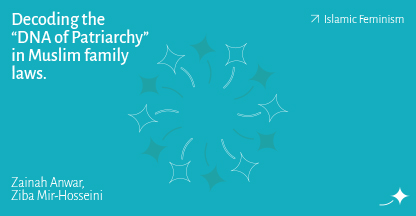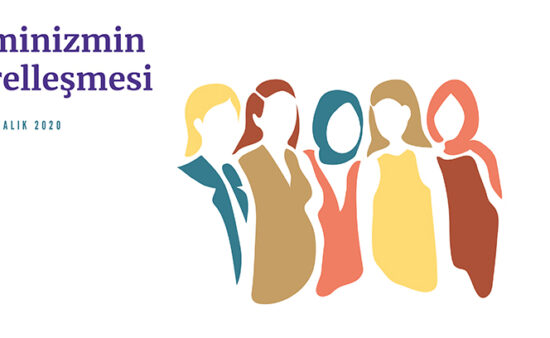December 20, 2020
In this discussion, I will analyze the historical transformation of fatwas given on this geography on abortion and refer to the advice of female preachers who answer religious questions on the Alo Fatwa Line affiliated to Istanbul Provincial Office of Mufti. First of all, I would like to express that I will not say anything normative about abortion, that I am not a theologian, that I don’t agree or disagree with the fatwas given, nor do I worry about saying whether I find them justified. I just want to take a look at the reasoning behind the fatwas given in the past and given today, and explain how religious interpretations which can be generally considered as “that’s how religion works” could transform along with political changes and technological developments throughout history, and state that the decisions that are generally thought to be static and to be closed to change are actually interpretations made within the context of time.
Let me start here: The views on abortion in classical fiqh interpretations vary from sect to sect. But they have one thing in common, which is that the soul incarnating in the body is a milestone. This milestone is regarded as a stage where abortion would not be possible from then on. For example, according to Hanafis and Zaydis, the soul incarnates on the 120th day, so abortion is allowed before that day. According to the belief of the Hanbalis, the soul incarnates on the 40th day, according to many Malikis, it incarnates when the sperm and egg combine. After the incarnation, it is thought that the fetus is a human being, and that before it incarnates it had the vitality similar to plants or animals, so abortion is possible during this period (Musallam, 1983). Until the 19th century, abortion was neither legally prohibited nor a fatwa that prohibited abortion existed on this geography. However, with the advent of biopolitics in the 19th century, “life” becomes an issue of the ruling power, population politics emerge, birth and death rates become an issue and medical science becomes institutionalized, and then abortion becomes an object of the ruling power. And when abortion was first banned in the Ottoman Empire in 1838, shaykh al-Islam was asked to issue a fatwa stating that abortion was a sin (Demirci and Somel: 2008). We can say that the fact that the discourses of the state power and religious authorities on abortion being so intertwined is a phenomenon which has been going on since then, as in many other issues.
Parallel to the fact that life is a political object, ultrasound technology has also seriously affected religious and non-religious interpretations about abortion. Now that the fetus can be seen with ultrasound, the soul’s incarnation into the body no longer indicates a transformation. The visibility of the fetus then began to have an authority and a new consciousness started to emerge about the fetus that then had inviolableness as well as rights. This fetus had become an icon of life, representing life. So what ultrasound did was not really just represent the fetus, but reconstructing the fetus as a physical, social entity that demanded an ethical response from us (Haraway 1997). And today, the inviolability of the fetus’s right to life is emphasized in the abortion fatwa of the Presidency of Religious Affairs, and it is stated that nobody, including the mother and father can interfere with this right to life from the moment the sperm and the egg unite, as long as the mother’s health is in danger.
The Supreme Council For Religious Affairs (DİYK) gave its first fatwa on abortion in 1956. An important exception to abortion that was not strictly permissible was the DİYK’s council decision in 1994 stating that women who had been raped during the Bosnian War could have abortions. According to the decision of the council, this situation should be considered in terms of the greatness and dignity of Islam and the continuation or disappearance of the Islamic community in this region. Therefore, the abortion of Bosnian women was allowed, and even a gynecologist was sent from Turkey to Bosnia. What was expressed in this statement as an excuse was not the mental health of rape victim women and the difficulties they would go through the rest of their lives, but the greatness of Islam and the presence of the Islamic society in the region, and I think that there existed the body policy of Islam again. If we consider the Islamic society and ummah as a body, it is possible to say that what was expressed here can be counted as a type of biopolitics. Like the fatwas themselves, their exceptions can vary in different political contexts and can be shaped by the knowledge of different authorities.
In one of the statements made by the former President of Religious Affairs Mehmet Görmez, at a time when abortion discussions were intense, I think it was very interesting that his only references to abortion being scientists and science technology while stating that abortion . was illicit. When I looked at the fatwas given in Alo Fatwa line, I saw that a strange love-hate relationship was established with modern medicine. While some fatwas, as in abortion, were completely based on medical discourse and fully embraced abortion, in others it could be seen that they clearly contradicted medical discourses. Likewise, it is also possible to say that such a tense relationship was established with the science of psychology. If I go back to Mehmet Görmez’s fatwa statement, he later stated the following: “Instead of stating general provisions on issues such as protecting the mother’s life, eliminating the consequences of sexual assaults such as rape, and serious illnesses emerging in the fetus in mother’s womb, a specific judgment may be required for each specific situation.” I remember being quite surprised when I read these. Because, although more difficult and complex questions were directed to the Supreme Council for Religious Affairs and answered by the experts there, what I observed in my field research on Alo Fatwa line was that abortion was strictly illicit. In my interviews with female preachers, I was never mentioned of exceptions, except that the mother’s health was at risk.
At this point let me move on to the research I just mentioned. In 2015, I conducted a field research for my master’s thesis on the Alo Fatwa line of Istanbul Provincial Office of Mufti, in a room where female preachers answered questions asked by phone. During my visits to the room called the “Miss Fatwa Room” for five months, I’d listened to preachers’ responses to fatwa questions and conducted in-depth interviews with ten preachers and religious services experts. What I observed in the field research and what I’ve tried to explain throughout my thesis was that what happened there had been a form of governance, that is, with Alo Fetva, the state was going through people’s homes, families, and the deepest details of their daily lives and managed the problems with its own discourse.
But on the other hand, I saw that it was not right to discuss the female preachers’ fatwas only in terms of governance and power, that there was left an area that had been open to the preachers’ interpretations between the fatwas of the Presidency of Religious Affairs and the stories that the preachers listen to, and that the female preachers who were as well women familiar with women’s experiences in this field were trying to understand the women ask questions, to protect their rights, and gave personalized advice. In particular, preachers made specific comments on matters such as imam marriage, polygamy and religious divorce by trying to find solutions by protecting the upmost benefits of women as well as all parties in the stories that had been told to them. Based on what I encountered when I was working in the field, I can clearly say that abortion was the least flexible issue among the area of interpretation I’ve mentioned. Throughout my field research, I was intrigued by the facts that preachers’ fatwas about abortion had been very clear, and that they had given answers that regarded abortion as murder unless the mother’s life was in danger. Let me give an example of an advice given by a female preacher for better understanding. In one of the interviews, a woman called who had an abortion appointment with the doctor for the next day but who felt really guilty. When the preacher asked her why she wanted to have an abortion, she said she had an eleven-month-old baby, that her husband was very irresponsible and she was depressed. “If you’re depressed and your husband is irresponsible, why don’t you kill your eleven-month-old baby?” the preacher asked. And the woman gave up having an abortion. I do not discuss the veracity or the falsity of the fatwa given by the preacher here, but the point I want to emphasize is the strictness of the fatwa and the fact that abortion was put on par with murder. The fatwas on this subject are so clear that even the next-day pill is not allowed, because the possibility of the sperm and the egg being combined at the time the pill is taken is taken into account. It is very difficult to draw a time limit according to the preachers, and there is no difference between intervening in the fetus the next day and intervening after 3 months, or killing it at the age of eleven months. When I asked the preachers about the reasoning behind the fatwa, they told me that the soul incarnated in the body on the 120th day, so then the fetus was thought to be alive, but now with the ultrasound technology modern medicine could let us hear the heartbeat of the fetus and let us see its movement, and that therefore the fetus was a living and potential human being.
As you know, fiqh is a human-made discourse that is open to transformation and which is shaped according to the needs of people as well as being fluid and flexible. That ambiguity and flexibility that underlies Islamic interpretations becoming vague especially in the last century that we face when we look at history, is actually not something that has happened solely in the context of abortion. The codification of fiqh, especially in Muslim countries where family law is based on shariah, and thus where the emergence of strict laws that are based on gender hierarchy and that make women victimized are also a part of this. We also see this codification in legal interpretations on daily life problems, although not in a legal context. As for Alo Fatwa, the fact that one of the most visible issues of this codification being abortion is not independent from the emergence of biopolitics or the anti-abortion controversies in the Turkish politics in particular or de facto abortion bans. And it is no coincidence that the discourses of the religious authorities who openly oppose abortion concerning the fetus’ right to life as well as the anti-abortion discourses around the world for example in the USA are similar. They all point to the inviolability of life and the vitality of the fetus. What I want to say here is this: While the arguments against abortion are based from religious point, that point is actually not just religion. In fact, religion, which leads our daily life in particular, is never merely religion, that is, it is never independent of traditions, power relations and social dynamics.
The first draft of this article, with the title “The Transformation of the Fatwas on Abortion and the Power of the Life”, was presented on December 20, 2020, at the “Localization of Feminism” conference organized by Havle Women’s Association. You can click here to access other texts of our Feminism Localization conference.

